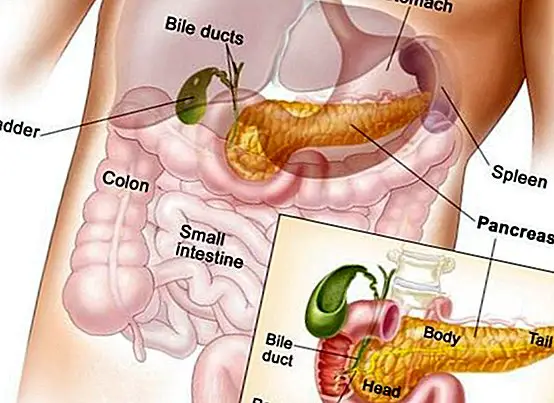Why the anus hurts: these are the causes of anal pain
What is the year?
The year It is the part of the body that is located right at the end of the digestive system, then the anal canal. Specifically, we find it located in the perineal area, next to the genitals.
I mean, it's about end of the digestive tract, in which we find precisely the sphincter that regulates the process of defecation. Thus, the anal area is irrigated by the inferior rectal vein and the inferior rectal artery, and this is where we eliminate feces and gases.

To be even more precise, we find it in the longitudinal groove that divides the buttocks, constituting the final part of the large intestine, formed by the ascending colon, transverse, descending, sigma, rectum and finally the anus.
The layer of the inner lining of the anus, or mucosa, has three parts that are divided into the glandular, transitional and scaly part (from the innermost to the outermost part), to finally continue with the skin of the perineum.
There are different problems that affect both the anus and rectum that are tremendously common; in fact, much more habitual than they think. Among these most common problems or conditions we can mention the presence mainly of hemorrhoids, fissures and abscesses. And less common the presence of Cancer.
Is it true that you can feel anus pain?
The truth is that most of these conditions tend to cause anal pain, which can feel like tightness or even small jerks that feel like lashes. In fact, we could define anal pain as pain that is located either in the anus or rectum, or around the perianal area. Medically anal pain is known by the name of proctalgia.
Most causes that cause pain in the anus are benign. Moreover, anal pain is rarely indicative of a much more serious condition such as, for example, colorectal cancer. Moreover, the pain can be tremendously intense as a consequence of the fact that in this area we find many nerve endings, and yet this does not have to be a sign of more serious pathology or more serious illness.

So, we must keep in mind that by itself anal pain is never a disease, but a symptom of a disorder or condition that may be affecting the year itself.
Causes of anal pain
Although it is common for anal pain to be caused by common conditions such as hemorrhoids, fissures or abscesses, the truth is that in reality there are many diseases or problems that can cause it. They are the following:
- Anal fissure: small tear that sits on the skin of the anus.
- Anorectal fistula: Abnormal communication between the anus or rectum to the skin around the anus.
- Hemorrhoids: dilated or inflamed veins that are located in the anus or rectum. They can cause itching and bleeding, as well as pain.
- Perirectal abscess: presence of pus in the tissues around the anus. Usually caused by a bacterial infection, which tends to accumulate in the area of the anus.
- Fecal impaction: mass of hard stools in the rectum.
- Constipation: difficulty in eliminating stool
- Crohn's disease: chronic inflammatory process that mainly affects the intestinal tract, although it can affect any part of the digestive tract (from the mouth to the anus).
- Perianal hematoma: Also known as thrombosed external hemorrhoid, it consists of a painful nodule that is located on the outside of the anus.
- Proctitis: inflammation of the rectal mucosa.
- Lone ulcer of the rectum: It causes a strong anal pain.
- Rectal prolapse: protrusion of the rectum through the anus. It usually causes stools with mucus or blood.
- Ulcerative colitis: inflammatory disease of the colon and rectum, causing inflammation and ulceration, diarrhea and frequent abdominal pain.
- Lifting syndrome of the anus: Spasms that are located and felt in the muscles around the anus.
- Colon cancer: It consists of a type of cancer that develops in the large intestine or rectum.
- Anus cancer: It presents as a strong pain in the anus, in addition to blood in the stool and fissures in the rectum. Of course, it is not very frequent.

On the other hand, did you know that anal pain may also be caused by poor diet? For example, by consuming foods with a lot of fiber or very spicy.
However, although the most common is that anal pain disappears within a few minutes or hours of appearance, or even after a few days, in case of anal bleeding or bleeding appears in the stool, or that the pain continues longer , it is best to go to the doctor for a quick and early assessment.
How can it be relieved?
When the anal pain appears the most usual thing is that they only feel pulls, and that in fact the cause does not matter because of the large number of nerve endings that we find in both the rectum and the anus. Therefore, there is really little we can do when it comes to relieving pain, since in most cases it tends to last a few seconds.
However, if it lasts longer, the key is to go to our doctor, who will perform a physical examination and help us discover the possible causes, especially if the pain is repeated over time. This article is published for informational purposes only. It can not and should not replace the consultation with a Physician. We advise you to consult your Trusted Doctor.


